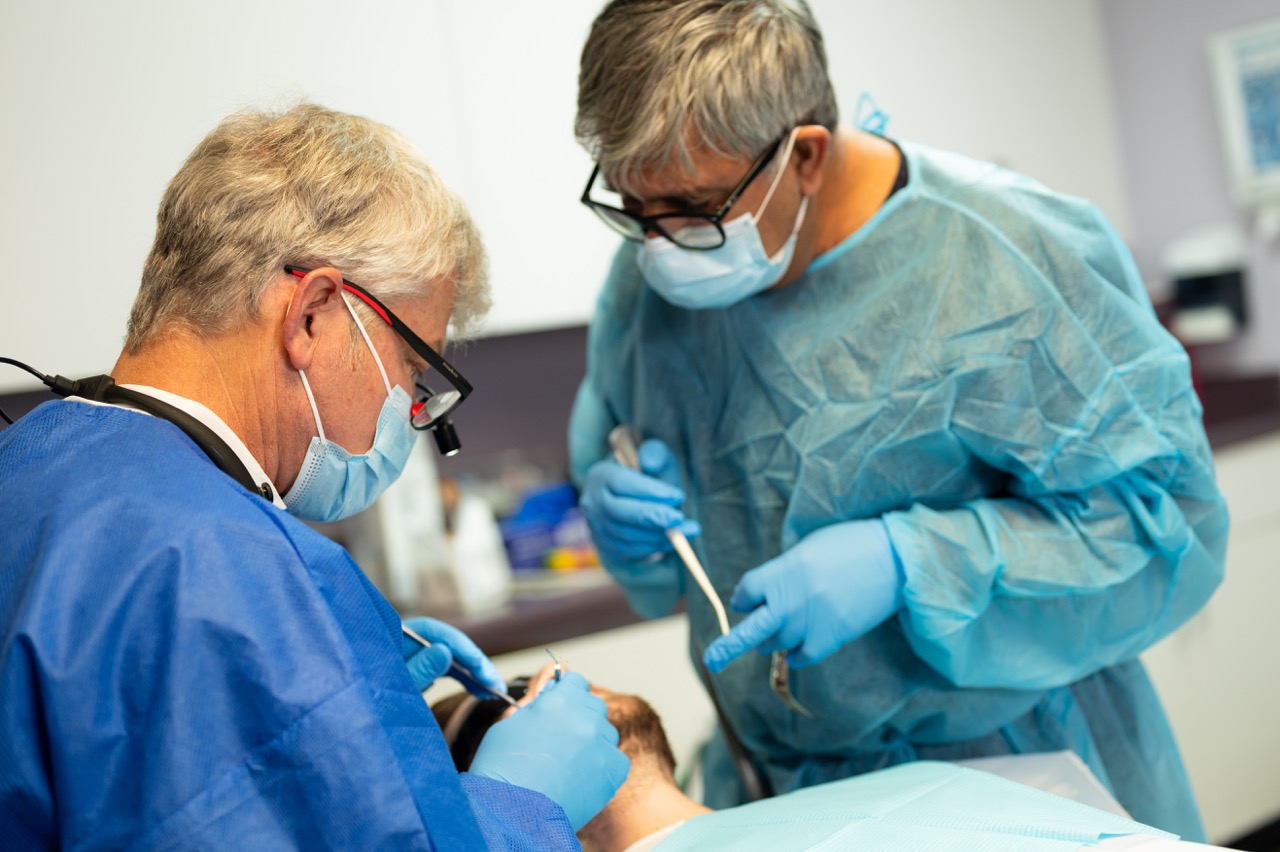Most people go through oral surgery at some point in their lives. While the concept of “surgery” may be off-putting, there are many simple procedures in dentistry which are considered surgical. Premier Care Dental Group in Pasadena is glad to have some of the most experienced dental surgeons on our team, so you know your smile is in good hands.
- Wisdom tooth extraction is probably the most familiar form of oral surgery. There are four permanent adult teeth which come in during late adolescence and often do not have room to grow in the jaw. These teeth may be removed before they come in, or after they have already appeared. Sometimes, they will be impacted and require special attention, because growing at an angle to the other teeth can cause pain, misalignment, and gum disease. Removing wisdom teeth is a very important step in oral health for most adults.
- Another common but crucial component in overall oral health is dental implants. These implants may replace a tooth which has broken or decayed. Small metal posts are implanted into the gums to replace damaged roots, and replacement teeth, which are shaped like the original tooth, are fitted onto these posts. Your teeth will not only be perfectly matched to your mouth, but the implants will beautify your smile.
- Sometimes, if gum disease or an accident damages the jaw bone, you may need a bone graft. Premier Care Dental Group’s expert dentists have the skill to reduce your recovery time. We also work with high quality providers of bone grafts and dental implants to get your mouth healthy and happy as fast as possible.
Working with Premier Care Dental Group
We’re here to make sure that your time with us is as effective and comfortable as possible. If you’re especially concerned about discomfort during procedures, feel free to ask our experts at Premier Care Dental Group about sedation dentistry during these procedures, although we also offer the latest in best in local and topical anesthesia for less involved procedures.
How do I care for myself following an oral surgery?
Patients who undergo oral surgery should always follow post-operative instructions laid out by their dentists. This may include avoiding certain foods that aggravate the healing process as well as staunching any minor bleeding that occurs.
Swelling may also happen after surgery and typically lasts between 7 and 10 days. Patients can use an ice pack on the outside of their face for the first day and it is important to keep the head elevated with pillows.
We recommend that patients rest for two to three days after surgery, avoiding physical activity.
Additionally, we encourage patients to brush and floss their teeth gently, while avoiding using any mouthwash or harsh rinsing. After a full day, rinsing with a saline solution can help keep operation sites clean.
What should I do to prepare for an oral surgery?

Following any directions from your dentist is critical to the success of a surgery and the resulting recovery period. Generally, patients should not eat on the day of the operation as eating can interfere with anesthesia and can present a contaminated operating site for your oral surgeon.
Staying well-rested before and after surgery can improve recovery time as well as understanding directions for the recovery period. Some studies indicate that good sleep can help to reduce post-operative pain.
Finally, many more involved oral surgeries require sedation, which dangerously impairs a patient’s ability to drive. As such, patients must make arrangements for transportation from our office.
What about oral surgery and jaw pain?
It is common to experience varying degrees of pain after oral surgery. Our dentist will likely prescribe pain medication after an operation to help in the recovery period. Jaw pain is particularly common, especially after operations such as tooth extractions.
The most severe pain will likely subside within the first 24 hours, though it is not uncommon for more invasive operations to cause lingering pain.
What can I eat following the procedure?
Our dentist will explicitly lay out instructions for when and what can be eaten after surgery, but most patients will need to stick to soft foods for at least the next seven days, possibly extending up to four to six weeks. Foods that are difficult to chew, crunchy, or acidic are generally to be avoided during this time. Straws should not be used for at least 24 hours after surgery, as they can cause strain in the mouth that can disrupt blood clots.
Additional Information
While Premier Care Dental Group offers plenty of resources and guidelines both before and after oral surgery, our dental staff is also happy to answer any additional questions you may have.
To get started, just call us at (626) 669-3141, or reach out to us through our contact page.

